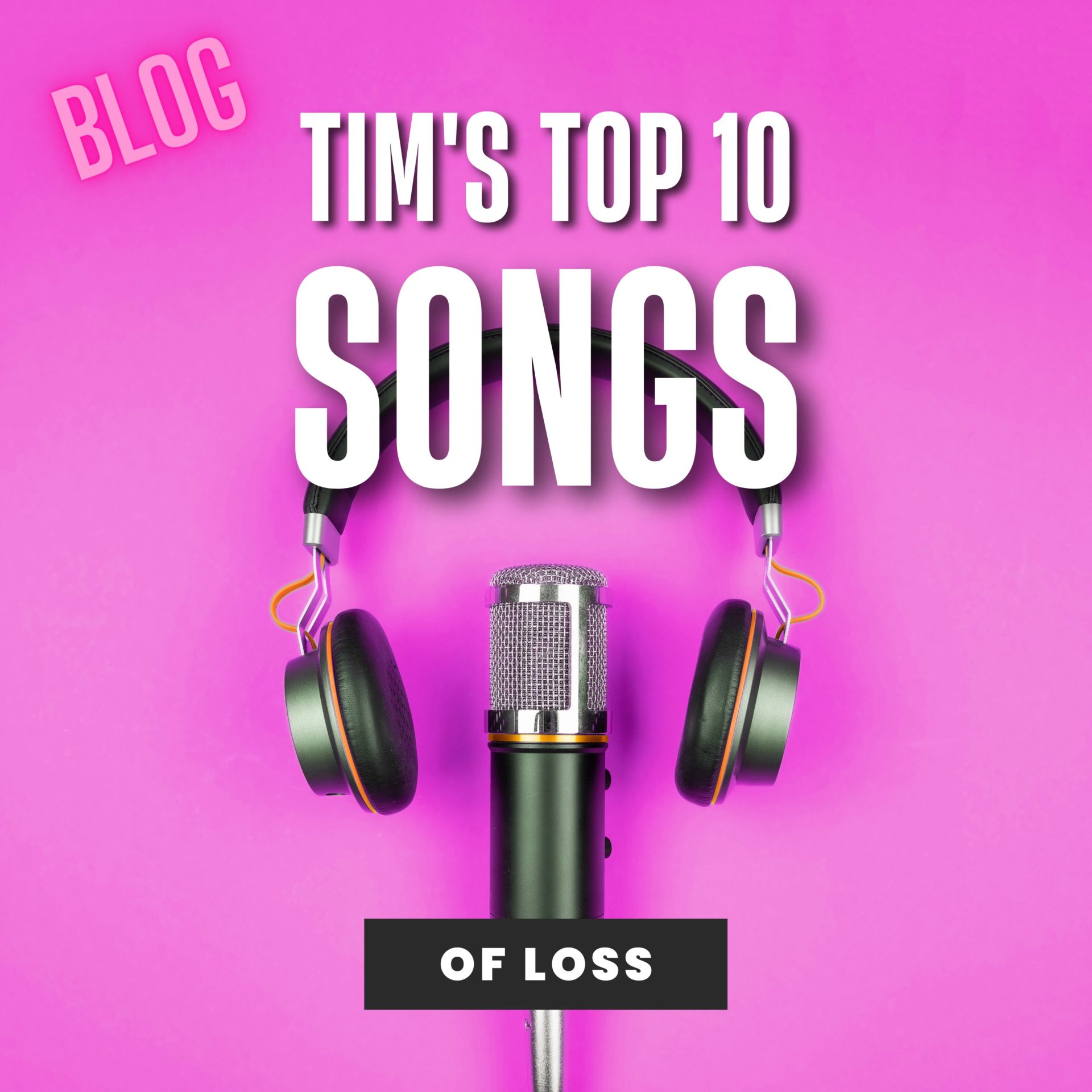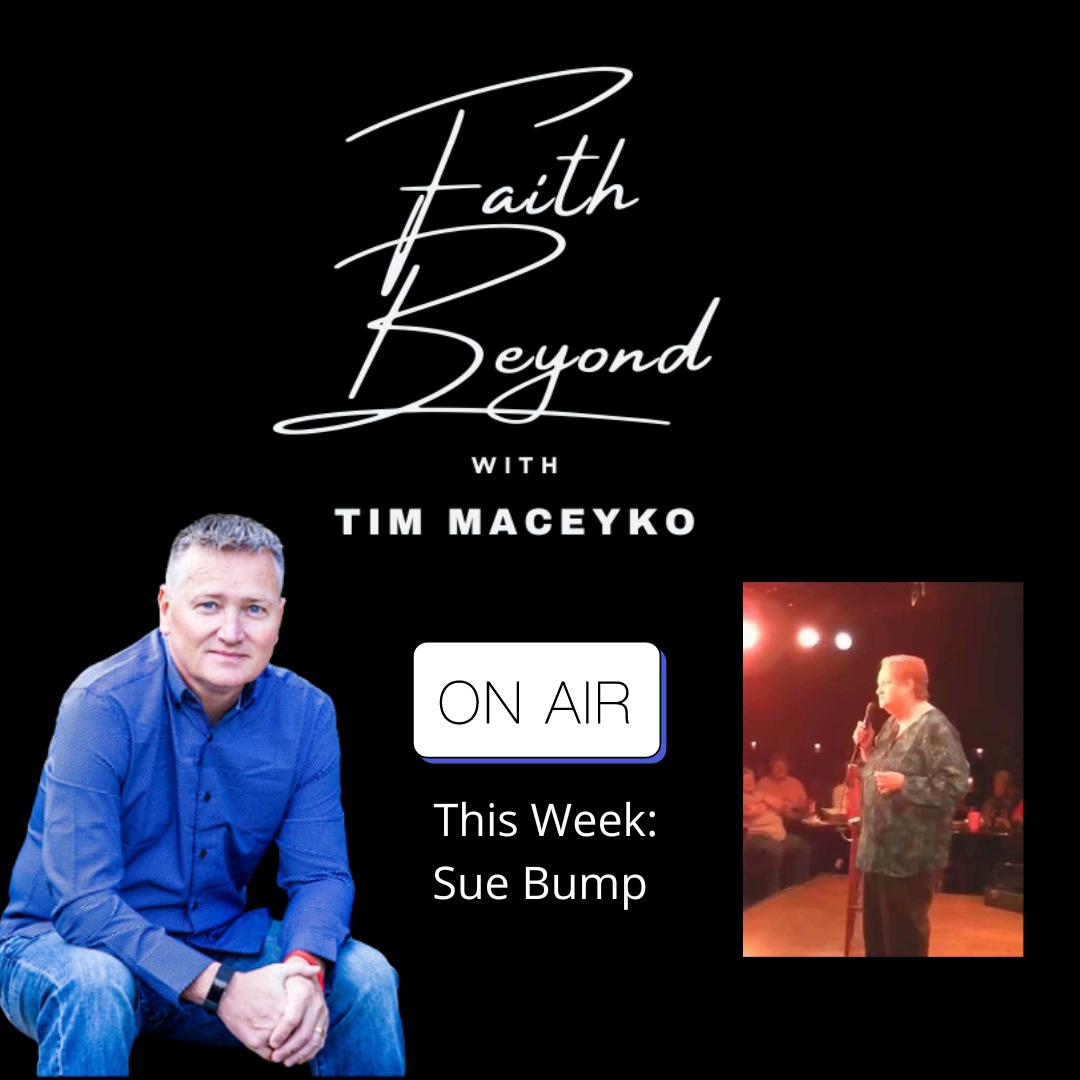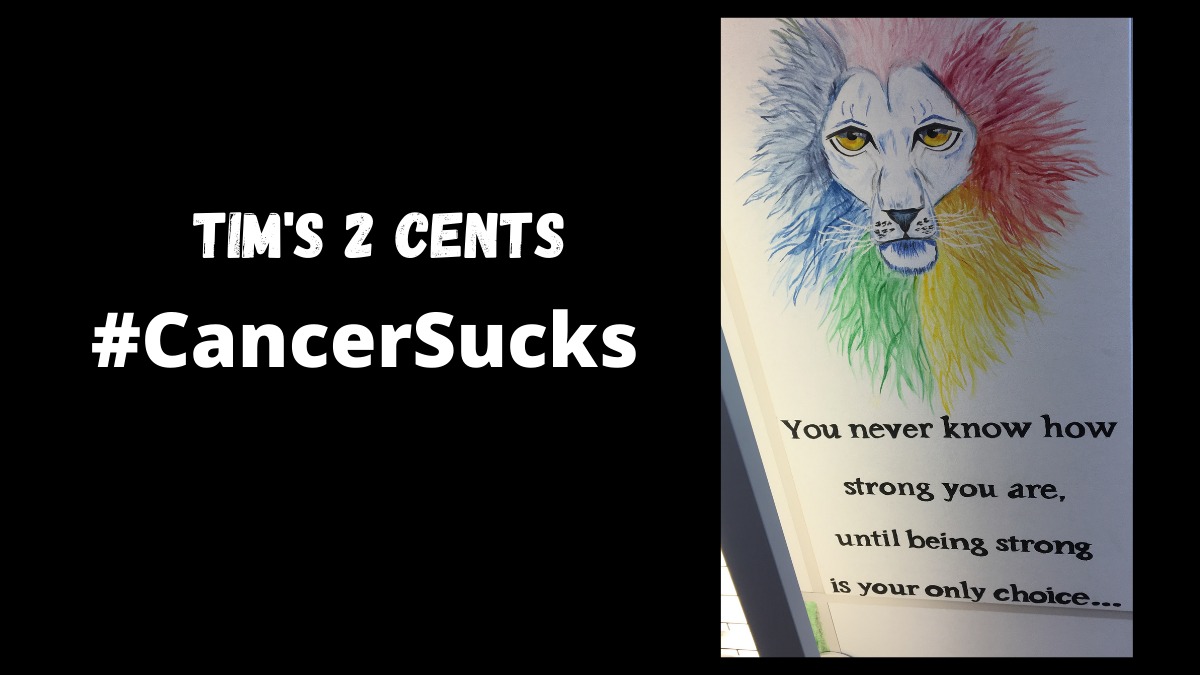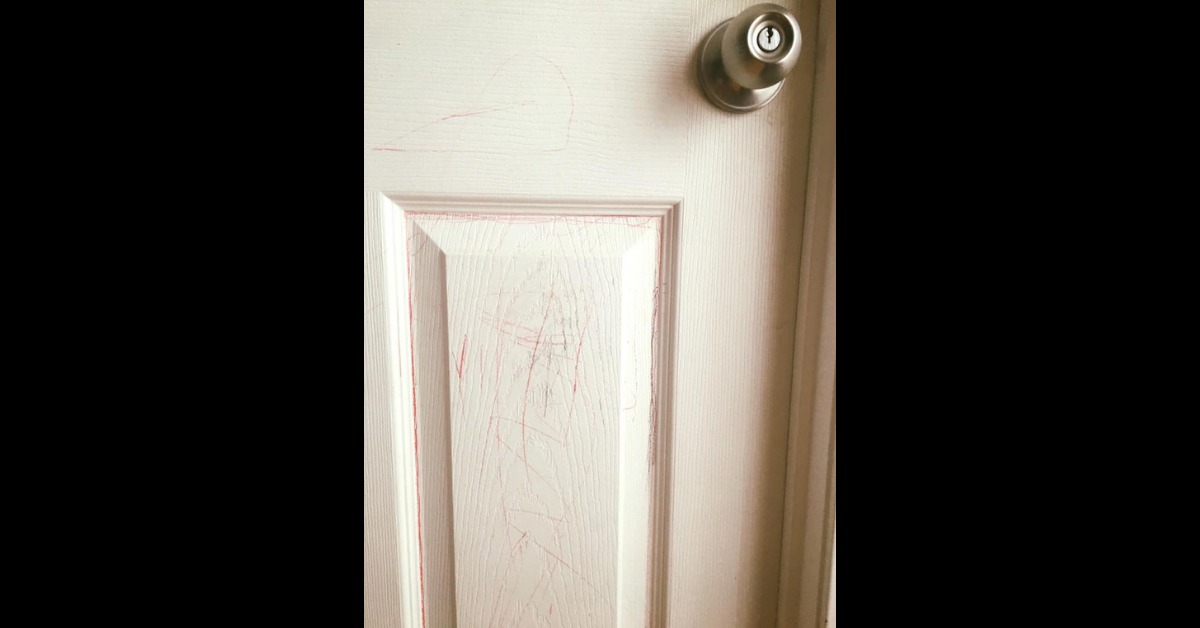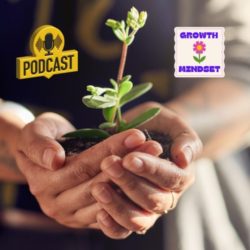
Post Traumatic Growth (PTG)
This week’s podcast is all about how we can experience Post Traumatic Growth (PTG) after the trauma we face in our lives. Below you will find a rough translation of the show for those who would rather read it or for additional reference.
Show Intro 00:01
Beyond the pain, beyond the adversity, beyond this life – it’s Faith Beyond. Author, Coach, and Faith Beyond founder Tim Maceyko explores grief, loss, overcoming adversity, various belief systems from around the world, and so much more. The Faith Beyond Podcast starts now.
Tim Maceyko 00:26
Well, Tim Maceyko here. Welcome to another edition of the Faith Beyond show. I’ve been promising that I would bring the Post Traumatic Growth story, or information, to you. For several weeks I’ve been saying I’m going to do that, and so this week I’m going to finally do it. I’m going to bear down and bring to you this concept of PTG, or Post Traumatic Growth, and discuss how we can grow after the trauma, after the adversity, after we manage all the emotional issues that we’re going to go through. Then the light starts to come back on, and so I want you to understand that, once you’re through that negative phase and a little bit of light starts to peek through the clouds, there’s this opportunity for major growth. That’s PTG. Post Traumatic Growth is phenomenal, and I believe in it. I live it every day. I’ve experienced all five of the things that they talk about, and so I’m going to share with you today a little bit more about that.
01:28
I like to kick things off with either a quote or a scriptural reading or something, just to put us in the right frame of mind. This week I’m going back to the Bible, and I have 2 Corinthians, chapter 4, verse sixteen through eighteen. Well, let’s just go with chapter 4 and verse seventeen. Let’s leave it at that, because I love this one. “For our light and momentary troubles are achieving for us an eternal glory that far outweighs them all. For our light and momentary troubles are achieving for us an eternal glory the far outweighs them all.”
So, the troubles are temporary, the problems are momentary. Right? We will have a glory, an opportunity that is way beyond any of the negative experiences in our life. I love that. I really do. With that said, I promised you PTG, so, let’s get go.
Music Drop 02:42
Let’s go, take a ride with me. Let’s go, say goodbye to the worries on your minds… (music clip features artist Beza)
Tim Maceyko 02:52
Today I wanted to talk about this concept of what life is like after we survive the trauma, after we overcome the extreme adversity in our lives. Like sometimes we get stuck, right? Like, we can’t move on. But we can. We just don’t know how. And so, let’s start with talking about trauma itself. Like, what is trauma? We’re all familiar with the concept of Post Traumatic Stress Disorder, right? PTSD occurs as a direct result of trauma. We hear that military guys come back from war, and they have PTSD. I went through this event or that event, and now I have PTSD. But it extends from trauma, and triggers may include things like grief and loss. For instance, I deal with child loss, and that is a very traumatic event, and for some people, it causes PTSD and so forth.
But it could be other things as well, such as maybe being raped or you have severe drug abuse issues that have caused problems in your life, getting bullied, disease, illness, serious injury. Maybe you had an alcoholic mother or an abusive father. Maybe you were kidnapped. I mean, there’s all these different things that causes these traumatic events to occur in our lives, and it’s usually out of our control. It’s not something we wanted, but it’s something we have to live with. Here’s what happens – you have what is referred to as “emotional baggage” as a result of the trauma that you faced, and so things like insecurity and guilt come in to play. You may feel guilty about whatever trauma you went through because it was your fault for whatever reason, even though it may not be. Even if it is, so what? At the end of the day, though you hold onto this guilt, this emotional baggage. You might be afraid. You’re afraid after what you went through. Again, that insecurity I mentioned – you might be insecure from what you went through. You have this hurt, you have this pain, you just can’t let it go. You’re stuck with it, and then you may have this self-doubt, like I’m not worthy. I’m not able to do this, I can’t do that. And all these things are termed “emotional baggage.” And as long as we are stuck in this place of fear, this place of self-doubt, this insecurity, the hurt, the pain, the guilt, all of this, when we’re stuck and we can’t overcome those things, then we can’t move on. We can’t. That’s where people get stuck right there, they hold on to those things and they don’t overcome, and for some of us, that means we may need counseling, we may need professional help.
05:37
Maybe we don’t need professional help, but we still need time to deal with these emotions and these thoughts and these feelings and the emotional baggage that holds us back. You see, these storms in our lives really mess up our mind, right? I mean, if you could see into your mind, what would that look like? I always picture it as if a hurricane came through a town and it knocks over all these trees and these buildings and all these different things, and it is this total devastation. You can just picture that, right? This town destroyed along the beachfront. And that’s kind of what your mind is like after the trauma. And obviously we’d like to get back to the sunny days, we’d like to get back to better times, but again, we can’t get there if we’re holding on to this emotional baggage. So, what do we do? How do we get over it? What is the key? Well, most of the time, its counseling, professional help, talking to other people. But it’s really the time, the time to deal with whatever emotional concepts that you might be dealing with now.
06:52
Today’s show isn’t really about how we get over that, so I’m not going to spend a lot of time on that topic, but you’ve got to give yourself some time You’ve got to deal with the feelings, the thoughts, and the emotions that you’re experiencing. I am not a counselor. I am not a doctor. I’m just a guy who’s been there and has done it and lives it every day. Every day, I’ve got to deal with the loss of my child and it’s a difficult journey. That’s not something you just like let go and get over. You have to continue to work around it, and you try to learn how to use the pain to advance to better things.
07:30
Today’s show is about the benefits of PTG or Post Traumatic Growth. So, what is Post Traumatic Growth? Well, first of all, we mentioned a little bit ago this concept of PTSD. Everyone’s familiar with or has heard about Post Traumatic Stress Disorder. PTSD develops from these negative traumatic experiences you may have had. But not many of us are familiar with PTG or Post Traumatic Growth, which can be the positive side of the trauma that you faced. Yes, there can be positives. I mean, we don’t think of that, but it’s very, very possible. And these are five scientifically proven psychological things that may occur in your life as a result of the trauma that you faced, and I like these, so I want to share them with you.
08:20
PTG Benefit Number One – Stronger Relationships. Relationships strengthen. Now if you lost a child, like I have, then you may value the relationships with your other children even more than before. You may build on the relationship you have with your spouse more than ever. But at the same time, in general terms, you lost somebody, and you’re grieving. So now, you may look at the relationships with those around you differently. You may re-prioritize the relationships you have in your life because, maybe, the people you thought would be there for you during your time of need weren’t. And maybe people you never dreamed would be there for you in your time of need were. So, now you have this thing going on in your mind where you’re re-prioritizing. Hey, maybe I should spend more time with this person or with these people and less time with this person or those people. And so post-traumatic growth, stronger relationships, can occur. It definitely will, at the very least, the very minimum, make you think about those in your life and what those relationships between you and them look like.
09:39
PTG Benefit Number 2 – Find Your Inner Strength. Yeah, you find your inner strength. Now here’s the thing you are going through a traumatic moment and people love to say, oh, that person’s so strong. I wish I could be strong like that. The truth is, we don’t feel strong in those moments, but as we recover from them as we get over the emotional baggage that’s been holding us back. We work our way through that right. Then we realize that we are stronger than we ever thought possible. We realize that we just went through something that the average person has not and we overcame. And so when the more minor adverse situations occur in our life, we can draw strength from the fact that, hey, that’s nothing. What I went through over here was a million times worse than this. And so the post-traumatic growth benefit number two is you find your inner strength and you realize I am stronger than I ever knew.
10:44
Post-Traumatic Benefit Number 3 – You Savor the Moments. Life is fast, right? life is fast-paced, and we go flying through life, and we don’t slow down to enjoy the here and the now. But after the traumatic event that you’ve gone through, you learn to appreciate every moment. For that moment, you look at the sunset a little different. You appreciate the sunrise, the fact you get to see it the next morning. You take a walk through nature, and you tend to hear the birds chirp a lot more than you did. You notice the beauty of the green leaves on the trees and the swaying of the breeze and the flowers, moving and looking, blooming and beautiful. I can mention all these different things, but the point is, you learn to savor each moment. Whether it’s that walk through nature I mentioned, or it’s a moment in time with someone you love, or just watching a TV show. Anything you get to do; you have this different view of it. You appreciate it in a new way.
11:49
I remember when I broke my neck. I was in a wheelchair for a number of months. I had to learn to walk again. And the other day, I went out and I actually walked and jogged. I can’t jog the whole time, it doesn’t work like that for me, but I walked, slash, jogged, five miles. Five miles, which is great for me because I hadn’t exercised for like a year. And so, the first day I go out, I was determined that I was just going to do this. I am going to go here and go this way and come this way and come all the way back home. And I did it. And here’s the thing, I was in a wheelchair at one point in time. So, being able to walk or jog any distance is amazing, and the fact that I was able to accomplish five miles with my limitations is just mind blowing to me. I savored those moments. I savored every step. I didn’t look at it as a negative at all, I looked at it as an accomplishment. Every step I took I was closer to getting to that next mile and it made me feel so good because I appreciated it in ways that some may not. Some may look at it as I have to do this. I gotta get exercise. They may just be out there trudging along, but I’m out there going – wow. I can’t believe that I’m so blessed to be able to have this opportunity, when I may have been stuck in that wheelchair like other people still are. So, you really do savor the moments more.
13:09
Post Traumatic Growth Benefit Number 4 – A Deeper Spiritual Connection. I love this one. A deeper spiritual connection may occur. Now, if you are a Christian and you go to church every Sunday or maybe you go once in a while, the traumatic event may actually convince you to go more or be more involved than you were. Maybe now you’re giving more to the church and you’re helping out at different events, and you’re really involved. Maybe you dive into the Bible more. Whatever that may look like. It can be more than the church too. For some people it means you question what you believed before and you ask questions and look at things that you never thought you would consider, because you’re searching for this deeper spiritual connection. You want to connect to something bigger and more powerful, and you don’t understand what that is anymore, and that’s okay too. Both scenarios are fine because it gives you opportunity to grow in whatever way works.
14:16
For me, I’ve done a lot of studying of different religions and faith belief systems from around the world over the last 10 years. I am still a Christian at my core. At least, I feel that way but I’m also much more progressive in my thinking. I can appreciate Buddhism; I appreciate Hinduism and the Muslim faith and the Jewish faith. I look at meditation as a huge beneficial type of thing in my life. I can look at the Quran or the Tao Te Cheng or the Bible or the Torah. Whatever it may be, I can use that as a means to make my life better, because I’m looking at it from a different view than I ever have before. I’m looking at it as my relationship with God is on a higher level. It transcends any single religion, any man-made belief system, anything like that. I feel like God, and I connect now through nature and in ways that I never dreamed of, and that’s what’s working for me and I’m happy there. So, one way or another, the traumatic event may help you find a deeper spiritual connection than you ever dreamt possible.
15:26
Post Traumatic Growth Benefit Number 5 – A New Path, Journey, or Purpose. So, the last one I have for you is this concept that you’re going to go on a new journey, find a new path. You don’t have a choice. The trauma that you went through, the traumatic event, has forced you to look at life through different eyes, and so now you’re savoring the moments more and you’re reevaluating your relationships. You are, you know, maybe having more spiritual awareness, self-awareness, but it doesn’t mean you wanted to go on this new journey. And so, you say, well, how is that a benefit? How is that a growth thing? Well, here’s the cool thing about it. You may not have wanted to go on it, but you’re on it, and what you will find, if you really look deep inside yourself, is that you will find a new purpose, at least potentially. A new purpose, a new way of thinking. Something that you never dreamt you would do, is now right there for your taking, and you feel this passion about it. You feel this draw to it.
16:34
When I broke my neck, I went from being an athletic young guy to a coach, I became passionate about it. I loved it. It was the next best thing. In fact, I think it was what I was meant to be all those years. And now I lost my son, and I’ve re-evaluated my faith. And guess what? I’m on a new path where I’ve written books, and I’ve taken my coaching from my younger years and taken it off the basketball court and off the baseball field. I’m putting it into my Faith Beyond concept, where I’m out coaching people individually who have faced adversity, who have faced trauma, who need to overcome and continue to grow.
17:11
That’s my mission, that’s my passion. That’s my new purpose and the new journey that I’m on. I would not have taken that path if it wasn’t for the traumatic events in my life. And that is a Post Traumatic Growth Benefit. So, I challenge you to be down with PTG. Because once you let go of some of that emotional baggage, once you can work your way through it, again through counseling or whatever you need to do to get through it, there are amazing benefits waiting for you. If you haven’t experienced them yet, they’re right there. And if you have experienced them, I would love to hear about it. So, feel free to reach out to me and tell me how you’ve grown from your traumatic experience.
17:57
All right, I hope you enjoyed this week’s Post Traumatic Growth Benefits discussion. hearing about the PTG concepts and information. I’m happy to provide it to you. Let’s go ahead and take a break here. And the one thing, I want you to learn – is to be happy. Despite the adversity in life, there’s a lot of positives as well. Learn to embrace the happiness. That’s hard to do at times, but I want you to think that way this week. In fact, I want you to be happy, and I wanna be happy for you, which segues perfectly into this week’s song of the week. The band is called Life is an Epic Film and their song is “Happy for You.”
Song of the Week: Happy for You by Life is an Epic Film 18:39
Close your eyes and breathe it out. You’ve been crying for some time now. When working hard is paying off, you just gotta seize the moment and fly so high that you feel like you could even touch the sky. Baby, it’s time to let go and spread your wings and let them guide you. Now, hey, let yourself be proud of you. Let yourself be happy for you. Let yourself be proud of you. Let yourself be happy for you, happy for you. Looking back, you see the growth, how we move and find our ways. Everything that we go through makes us what we are today. So, fly so high that you feel like you could even touch the sky. Baby, it’s time to let go and spread your wings and let them guide you. Now, hey, let yourself be proud of you. Let yourself be happy for you. Let yourself be proud of you. Let yourself be happy for you. Happy for you. Be proud of you, proud of you, happy for you. Be proud of you, proud of you, happy for you. Let yourself be proud of you. Let yourself be happy for you.
Happy for you. Happy for you. Happy for you. Happy for you, happy for you, happy for you.
Tim Maceyko: And now it’s time for your Sign of Hope.
When the Cardinal Calls is the name of one of my books. It’s on Amazon, and it has my story on dealing with child loss and signs of hope. One of the things that happened, and I wanted to share this with you today, was an amazing sign. After Seth died, we were back in our home, and one afternoon I was sitting in the lounger and I was kind of nodding off, taking a little bit of a nap. My wife yells across the room at me. She was sitting over on the sofa, and she says, “Hey, Tim, wake up.” I get up and she says, “Look,” and I look up. And the ceiling fan is slowly turning. I’m like, yeah, the ceiling fan is turning. What about it? She said, “Well, the light switch is off. The ceiling fan switch is off. You know it’s not turned on. There should be no electric getting through there.”
I said, well, now hold on. You know there can still be an electrical current getting through, even if the switch is off. As I am explaining this, the ceiling fan slows down. The fan comes to a stop, and I go yeah there you go, see, I told you.
23:07
And then the most amazing thing happened. The fan stopped, but then slowly started to turn again – in the opposite direction. Now I have no way of explaining how that occurred that day. My wife just smiled and pointed again at the fan. And I hated to admit she had me, right? I don’t know to this day how that occurred, why that occurred. But I believe that we all get these signs in our lives, these moments that are hard to explain. Yet, because we’re humans, we attempt to explain them away, and a lot of times we do explain them the way, and so we miss the sign that we were given in that moment. Maybe it’s from your loved one, or maybe it’s just God leading you – either giving you comfort or leading you down a new path, a new direction, or guiding you to an answer that you’ve been searching for. Unfortunately, so many times we don’t listen, we don’t see, and we fail to receive the messages we are meant to. So, think about that as you go forward this week.
24:18
Look for the signs, take a walk in nature and talk to God or whatever Supreme Being that you believe in. See if you can connect on a spiritual level that’s beyond the norm. Don’t think you’re a freak or weird. Just go out and be alone and walk through the forest or whatever you can do. Go down to the local park and just reconnect. Put away the cell phone, put away all the outside information and other people. I encourage you to try to take that walk alone. If you can avoid talking, do it, just focus on what is around you this week. If you do, I think you’ll be amazed at what you might find.
So, until next time, this is Tim Maceyko, and I hope you enjoyed this week’s Faith Beyond Show. I will leave you with this: You can overcome any adversity in life. Together we can overcome, we can achieve, we can go on and do great things with the time we have on this earth. So, go do it. It’s your time, it’s my time, it’s our time.
Music Outro 26:02
Our Time by Bex
Tim Maceyko: You can find me on Twitter and Instagram @TimMaceyko, and on Facebook at Faith Beyond with Tim Maceyko.

